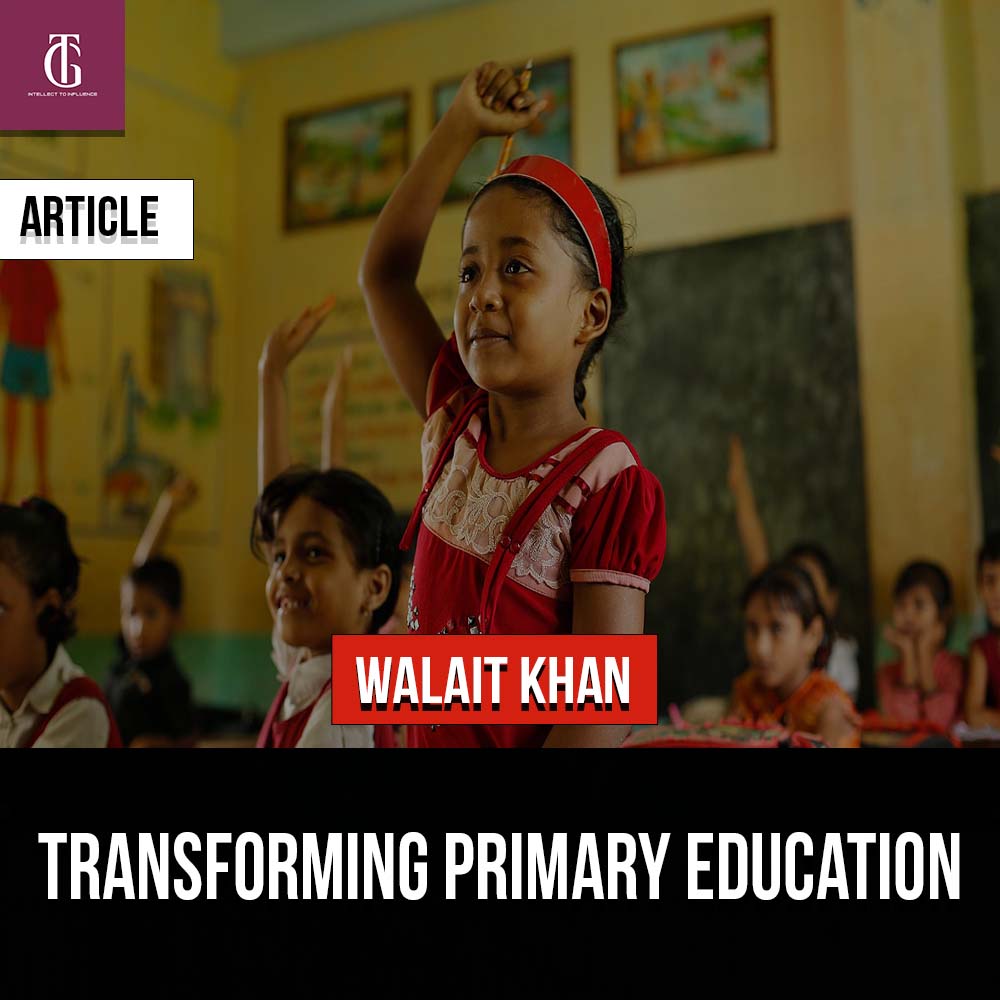
World Education Day, celebrated annually on January 24th, holds a significant place in recognizing the pivotal role education plays in shaping societies globally. The theme for the 6th World Education Day, “Learning for Lasting Peace,” resonates profoundly amid the escalating global challenges of racism, discrimination, hate speech, and xenophobia. This day is celebrated across the globe, including in Pakistan. More than ever, education stands as a beacon for creating informed and empowered citizens, fostering democratic values and stability. It brings positive change to the behavior of individuals and society.
Education, originating from the Latin word “educare,” meaning “to bring up” or “to advance,” is the cornerstone of a nation’s development. It encompasses the process of acquiring knowledge, skills, values, and habits, propelling economic growth, scientific innovation, and cultural preservation. In Pakistan, despite numerous education policies like the National Education Policy 1972, the Education Policy 1992–2002, and the National Education Policy 2009, challenges persist, hindering the equitable distribution of educational opportunities.The recent National Education Policy 2023, focusing on access, equity, quality, and accountability, aims to address these challenges. However, the literacy rate remains stagnant, standing at around 62 percent, and Pakistan grapples with the second-highest number of out-of-school children globally, as reported by UNiCEF. Rural areas face infrastructure deficiencies, lacking proper buildings, electricity, and clean water, hindering quality education. It impedes the commitment to sustainable development goal number 4, which is quality education.
The dire situation extends to Khyber Pakhtunkhwa (KPK), where nearly 4.7 million children aged five to 16 are out of school. While the government’s commitment to education reform is evident, challenges persist, including poor access, an ineffective and outdated curriculum from 2006, inadequate financing, and a lack of qualified staff. Despite these obstacles, KPK has introduced initiatives like free textbooks, conditional grants, increased education budgets, and teacher induction programs.A notable step in KPK’s education sector is the appointment of approximately 2500 school leaders, focusing on quality improvement in the primary sector, academic program monitoring, and professional development for teachers. This innovative approach is showing promising results in districts like Haripur, where school leaders have enhanced enrollment, improved education quality, engaged the community effectively, arranged successful annual events of co-curricular activities, working on the achievement of 100 percent literacy skills, and impelenting students learning outcomes (SLOs) in letter and spirit.However, the challenge of achieving both quality and quantity in the education system persists, especially in the primary sector.
It is time to support this new cadre of School Leaders for the quality of education as well as empower teachers to address the crisis in the education system. This will bring positive change to the education system and progress across institutions, regions, and provinces. Education is a key to global peace and progress and can reduce regional polarization. Children are the national asset of a nation, and they are the future of Pakistan. For this primary sector, demand more investment, technology-oriented reforms, and an increase in the GDP percentage of education to make it a top national priority.Moreover, supporting Article 25A of the Constitution of Pakistan, which mandates free and compulsory education for all children between the ages of five and sixteen, becomes crucial. This constitutional provision is a fundamental right that needs rigorous implementation.The gender disparity in literacy rates is stark, with male literacy exceeding 70% and female literacy lagging behind at less than 50%. Empowering women through education is not only a matter of justice but also a catalyst for a better-educated nation. Despite the obstacles, now is the time to honor, respect, and empower teachers, the builders of a nation.
The introduction of school leaders and their comprehensive job descriptions is a positive step, indicating a commitment to positive change. Their efforts, despite resource constraints, exemplify the dedication required to bring about substantial improvements.World Education Day serves as a reminder of the urgent need to prioritize education for lasting peace and sustainable development. Pakistan must seize the opportunity presented by the new National Education Policy 2023, support the school leader initiative, empower teachers, and diligently implement Article 25A to ensure every child’s right to education. Only through collective efforts at individual, societal, and national levels can Pakistan truly prosper through the transformative power of education.
In conculsion, Education is the mother of all institutions; investing in this sector will bring fruitful change to society; it is the path to human development; and it will ensure human security. Especially investing in the primary sector will transform the quality of education at secondary, higher secondary, and higher education in Pakistan. It needs good governance, investment in the knowledge economy, the national priority of the government, and the consent of all the stakeholders. Then Pakistan will achieve the theme of the International Day of Education in 2024 and Sustainable Development Goal Number 4 in an effective, efficient, and productive way.
Walait Khan
Walait Khan is a School Leader.





